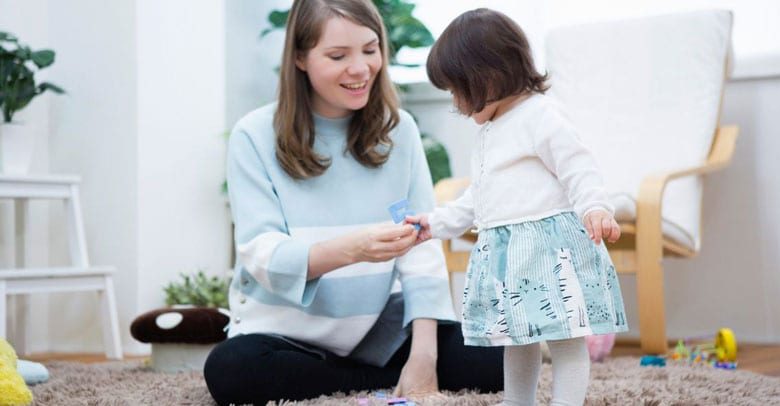5 Ways to Help Preschoolers Develop an Attitude of Gratitude

5 Ways to Help Preschoolers Develop an Attitude of Gratitude
It’s safe to say that toddlers think the world revolves around them. Every single person who has ever been born started out thinking they ran the show. Eventually, we all understood that other people mattered, too, and part of the way we stepped outside of ourselves and interacted with others was by showing and expressing gratitude.
Like so many other things in life, gratitude is learned. Humans aren’t naturally grateful — without some guidance, we’ll stay selfish as long as we can. And be honest … you probably just thought of someone in your life who could say “thank you” a bit more often.
Beyond purely societal benefits, gratitude has health perks. Recent studies have found that gratitude is linked to happiness in children by age 5. In short, grateful kids grow up to be happy teens and adults.
So how can we raise grateful kids? Here are some suggestions.
Be the example.
Like most other childhood behaviors, gratitude is something that kids learn best when they see it played out in their parents. If your child is acting selfish and ungrateful, provide them with examples of what it looks like to be grateful. (One of the best ways to do that is to say thank you to them!) And there’s no such thing as starting too young. The more often they see acts of charity and gratefulness, the more they’ll internalize it and make it a part of their normal thinking pattern.
Read!
What blog post is complete without a list of books?!? Here are some of the best stories out there on the topic of gratitude:
- “Big Berry” by Dan Yaccarino
- “Gracias / Thanks” (English and Spanish Edition) by Pat Mora
- “The Thankful Book” by Todd Parr
- “An Awesome Book of Thanks!” by Dallas Clayton
- “The Thank You Book” by Mo Williams
- “Thank You, Omu!” by Oge Mora
Make a gratitude “habit.”
Find a way to regularly express gratitude as a family. If it’s easiest to go around the table and list three things everyone is thankful for, do it. If it’s easiest to do that while driving in the car, do that instead. If you have older kids, you can sit down on Saturday or Sunday mornings and have everyone in the family write a thank you note on a piece of paper and deliver them during the week. Personalize this ritual so it’s fun for everyone and best fits your family’s style and schedule.
Help them experience EVERY part of gratitude.
Researchers have found that there are four parts of gratitude. Unfortunately, parents usually only focus on what children do to show gratitude. (“Say thank you!” or “Give grandma a hug for bringing you that toy!”) Experts say to broaden that practice, making sure to ask kids questions that …
- Help them notice the things they can be grateful for.
- Make them think about the ways people have expressed generosity to them.
- Recognize how it makes them feel to give and receive.
Let them feel disappointed.
Patrick Coleman with Fatherly says it perfectly: “A disappointed kid isn’t an ungrateful kid.” Kids are still trying to learn how to regulate their emotions, and disappointment is a pretty hard one to manage.
If your kid is under the age of two, have very low expectations about them expressing gratitude when they don’t get what they want. Explain the concept of gratitude and make sure they say thank you, but don’t expect them to be happy about it.
For older kids, still keep your expectations in check. They may be better at expressing gratitude, but dealing with disappointment is still hard. Don’t mislabel them as ungrateful — they’re kids! Instead, help them work through the emotion. When they succeed, make a BIG deal of it and reinforce that the way they handled the situation was spot on.
Finding ways to be thankful — in the good times and bad — is an invaluable skill to give your kids. It’s never too late (or, again, too early) to start instilling gratitude in their daily routine in as many different ways as you can. It may not be something they’re even aware you’re doing, but it will be something they’ll be thankful to you for in the long run.
For more information on how to raise happy, confident and kind children, check out:
- Ten tips to Help you Raise Confidence Children
- Teaching Kids to be Kind





